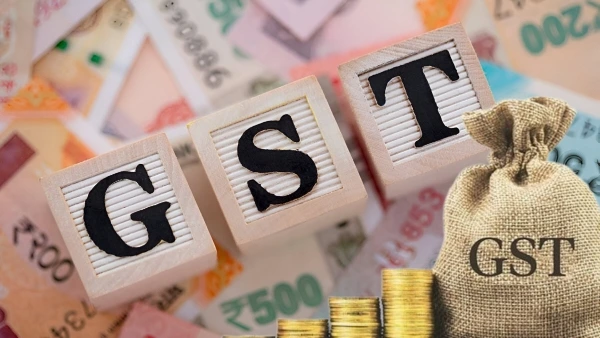Table of Content
▲
The real estate sector is dealing with a significant obstacle. Developers are becoming concerned about a proposal to impose an 18% Goods and Services Tax (GST) on Floor Space Index (FSI) and additional FSI. Let's dissect this to see why it matters and how it might impact affordability, housing costs, and the aspirations of millions of homebuyers.
What Is FSI and Why Is It Important?
Floor Space Index, also known as FAR (Floor Area Ratio), determines the total floor space that can be built on a plot of land. Think of it as the rules that set how tall and big buildings can be in a particular area. Local authorities often charge developers fees for extra FSI, which allows them to build more than the standard limit.
What’s Happening?
The government is considering a proposal to apply 18% GST on FSI and additional FSI charges. This tax would be paid by developers to local authorities. While this may seem like just another tax, it could have big ripple effects on the housing market.
Developer's Concerns
1. Rising Housing Prices
Developers warn that this GST could increase housing prices by 7–10%. Imagine saving up for a home, only to find it costs much more than you expected.
2. Impact on Affordability
Affordable housing, a key part of the government’s ‘Housing for All’ mission, could be hit the hardest. If developers face higher costs, they may pass them on to buyers, making homes less affordable for middle-class families.
3. Financial Burden on Developers
For developers, these charges would mean higher project costs. Many worry that these extra expenses could make ongoing and future projects financially unviable.
Also Read: Alibaug’s New Luxury Frontier: Inside Oberoi Realty’s 81-Acre Vision
Retrospective Taxation Worries
A major concern is the possibility of retrospective taxation, where the GST would apply to past projects. This means developers might face unexpected bills for completed projects. Such a move could lead to financial strain, delays, and even halted developments. For homebuyers, this might result in delayed possession of their dream homes.
Who Is Speaking Out?
The Confederation of Real Estate Developers’ Associations of India (CREDAI) has raised these issues in a letter to Finance Minister Nirmala Sitharaman. CREDAI President Boman Irani emphasized that FSI charges already make up a big portion of project costs. Adding an 18% GST could discourage housing development, especially for affordable homes.
Niranjan Hiranandani, Chairman of the National Real Estate Development Council (NAREDCO), also voiced similar concerns. He warned that this tax could hurt the real estate sector, which is a key contributor to India’s economy and job creation.
Why This Matters to Homebuyers
1. Higher Costs
Buyers may need to pay more for homes, which could push many middle-class families out of the market.
2. Fewer Affordable Housing Options
Affordable housing projects might become too expensive for developers to build, reducing the availability of budget-friendly homes.
3. Delays and Uncertainty
With developers facing financial pressures, projects may slow down or even stall, affecting buyers who are waiting to move into their homes.
What Are Developers Suggesting?
To minimize the damage, CREDAI has proposed several measures:
- Reclassify FSI Premiums: Developers suggest treating FSI charges as government-granted permissions instead of commercial services, which would exempt them from GST.
- Allow Input Tax Credit (ITC): Developers want the right to claim credit for the GST they pay on construction materials and FSI premiums.
- Avoid Retrospective Taxation: Applying GST only to future projects would prevent financial shocks for ongoing and completed developments.
- Exempt Affordable Housing Projects: To protect low-cost housing, CREDAI recommends exempting such projects under the Pradhan Mantri Awas Yojana (PMAY) from GST.
The Bigger Picture
Real estate is not just about buildings; it’s about people’s lives. This sector creates jobs, supports over 300 related industries, and provides homes to millions. Decisions like this GST proposal could have far-reaching consequences for the economy, affordability, and the housing dreams of ordinary families.
The proposed 18% GST on FSI charges is a pressing issue for India’s real estate sector. While the government’s intention may be to boost revenue, the potential impact on housing prices and affordability cannot be ignored. Developers and homebuyers alike are hoping for a fair decision that ensures homes remain accessible to all, especially the middle class.
As the GST Council meets to decide, the stakes couldn’t be higher. The outcome will shape the future of housing in India—whether it remains a dream within reach or drifts further away.
Also Read: Delhi Metro Golden Line Extension to Jewar Airport Proposed







_1770976628.webp)

_1771582392.webp)
_1771577585.webp)
Ans 1. FSI, or Floor Space Index, determines the maximum allowed floor area on a given plot of land. It controls building density and the size of structures in a specific area.
Ans 2. Developers warn that imposing 18% GST on FSI charges could increase housing prices by 7-10%, making homes more expensive and less affordable for buyers.
Ans 3. CREDAI, the national body of real estate developers, urges the government to reconsider the 18% GST on FSI, citing potential negative effects on affordability and the housing market.
Ans 4. Retrospective GST would apply to past projects, creating unforeseen financial burdens on developers. This could disrupt project timelines, increase costs, and harm ongoing developments.
Ans 5. GST on FSI premiums could make affordable housing projects economically unfeasible, raising costs and possibly pricing out middle-class buyers who depend on budget-friendly homes.
Ans 6. The added cost from GST could reduce housing demand, as higher prices discourage potential buyers, especially those in the middle-class segment who are already struggling with affordability.
Ans 7. The introduction of GST on FSI would disrupt developer's cost planning, raising project costs significantly. It would create financial uncertainty, especially for ongoing projects that have already been budgeted.
Ans 8. The additional 18% GST on FSI could make affordable housing projects more expensive to develop, potentially leading to fewer such projects being completed and worsening the housing affordability crisis.
Ans 9. CREDAI suggests reclassifying FSI premiums as government-granted permissions, allowing developers to claim Input Tax Credit (ITC), and exempting affordable housing projects from GST.
Ans 10. Homebuyers could face higher property prices, as developers may pass on the increased costs from GST, making homeownership more difficult, particularly for middle-class families.